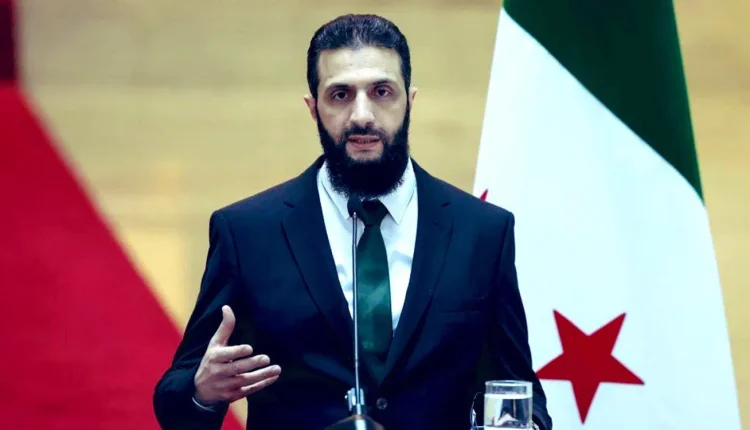Syrian Presidency Condemns Israeli Strike Near Presidential Palace as “Dangerous Escalation”
By Kardo Roj
DAMASCUS, Syria (North Press) – The Syrian Presidency issued a strongly worded statement on Friday, condemning the Israeli airstrike that targeted a site near the presidential palace in Damascus earlier the same day, labeling it “a dangerous escalation against the state’s institutions and national sovereignty.”
The overnight strike, which Israeli officials said was a response to escalating threats against the Druze population in southern Syria, marked one of the most direct military actions by Israel near the seat of Syrian power in recent years. The Syrian government described the attack as part of a broader attempt to destabilize the country and weaken its unity.
“The Israeli aggression constitutes a dangerous violation of Syria’s sovereignty and a direct attack on national security and the unity of the Syrian people,” the Presidency said in its statement. It called on the international community and Arab states to take a firm stance against what it termed “Israeli hostility.”
The strike follows a week of growing unrest in Druze-majority areas such as Suwayda, Jaramana, and Sahnaya, where clashes between local residents and government forces have resulted in multiple casualties. Israeli officials, including Prime Minister Benjamin Netanyahu and Defense Minister Yisrael Katz, have justified their military actions as necessary to protect the Druze community in Syria.
In statements following the strike, Katz warned that Israel would not permit continued violence against Druze civilians and emphasized that “further deployment of hostile forces south of Damascus” would provoke additional military responses.
This rhetoric has drawn regional and international scrutiny, with observers warning of a dangerous precedent in linking sectarian protection with cross-border military intervention.
In its statement, the Syrian government appealed directly to Arab nations to “unify their stance and express full support for Syria in confronting these aggressions,” portraying the Israeli actions as not only a violation of Syrian sovereignty but also an affront to broader Arab interests.
“These attacks, whether internal or external, are aimed at undermining Syria’s unity and will not succeed in weakening the resolve of the Syrian people or obstructing state efforts to restore peace and stability,” the statement read.
The government’s appeal suggests a desire to leverage pan-Arab sentiment against Israel, even as regional dynamics continue to evolve, with some Arab states normalizing relations with Tel Aviv in recent years.
The developments have also drawn a response from Washington. On Friday, U.S. State Department spokesperson Tammy Bruce condemned inflammatory rhetoric against the Druze in Syria and urged Syrian transitional authorities to de-escalate tensions and ensure the protection of all civilians.
Her statement appeared to strike a balance between supporting community protection and avoiding endorsement of unilateral military action, reflecting broader concerns over sectarian violence and regional stability.
While the U.S. has remained largely focused on counterterrorism operations in northeast Syria—where the Syrian Democratic Forces (SDF), backed by the U.S.-led Coalition, continue to maintain pressure on Islamic State remnants—the situation in the south underscores the country’s deepening fragmentation.

